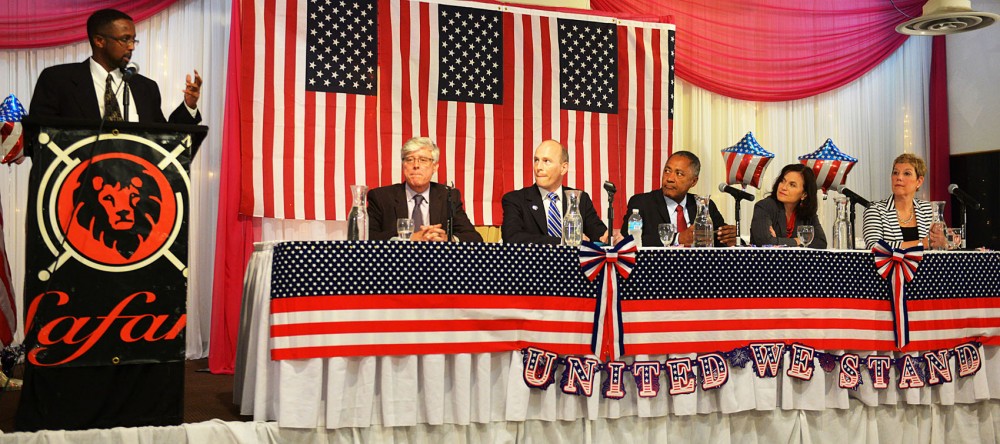In 2010, Hussein Samatar became the first Somali-American to hold public office in Minnesota.
In 2011, Mohamud Noor fell 300 votes short of becoming the first Somali-born state senator in the nation.
In April, Abdi Warsame received the DFL endorsement for City Council, which could pave the way for him to be the first Somali-American to hold a seat.
These men are examples of Somali-Americans getting increasingly involved in Minnesota civic life.
Last week, the five major DFL candidates for Minneapolis mayor debated at Safari Restaurant and Event Center in south Minneapolis to gauge issues important to the Somali community. With a growing population, Somali voters are an important base for candidates. “[The Somali community] will make a difference because they vote,” said Hussein Samatar, a former mayoral candidate. “Their numbers are thriving, and they can be a difference for [the election].”
Audience members posed questions on issues like the achievement gap, police profiling and the economy at the event, which was the first mayoral debate of its kind hosted by the community.
All five candidates expressed similar messages about wanting more Somali-American involvement in city government.
Somali groups haven’t made any formal endorsements yet, and debate attendees reacted equally to the candidates on Friday. The DFL will vote to endorse a candidate at its convention on June 15.
Education and the achievement gap between white students and students of color in Minneapolis was one of the main issues discussed at Friday’s debate.
Samatar, who had considered running but didn’t due to health concerns, said the achievement gap is “unacceptable” in Minneapolis.
“[Somali students] need more help,” he said. “Minneapolis won’t go to the next level without everybody.”
Many candidates said they would start addressing the issue in early childhood education.
“[Early childhood education centers] save money; they improve the lives of our children,” said candidate and former Hennepin County Commissioner Mark Andrew. “They ought to be expanded.”
Current councilmembers and candidates Gary Schiff and Betsy Hodges both stressed improving pre-natal health care as another way to address the achievement gap.
Candidates also addressed the issue of police profiling.
Councilman and candidate Don Samuels, who came to the U.S. from Jamaica 43 years ago, told the crowd he understands how police can treat immigrants differently.
“I know what it means,” he said, “to feel intimidated by the police.”
Possible reasons for unequal treatment from police, Samatar said, are cultural and language gaps. He said police should develop better relationships with all communities to make the city safer.
“People can make neighborhoods safe when they feel safe,” he said.
Another main topic at the debate was the economy.
The candidates all said there should be more Somalis involved with city government to ensure their economic needs are met.
Former City Council President and candidate Jackie Cherryhomes said Somali businesses aren’t “getting their fair share” of contracts to open businesses. She said there should be Somali-speaking employees in the city’s business and regulatory divisions so there aren’t cultural barriers to getting a business license.
Schiff pointed out that Minneapolis’ city code is outdated, putting immigrants at a disadvantage.
“A modern city needs a modern code,” he said.








